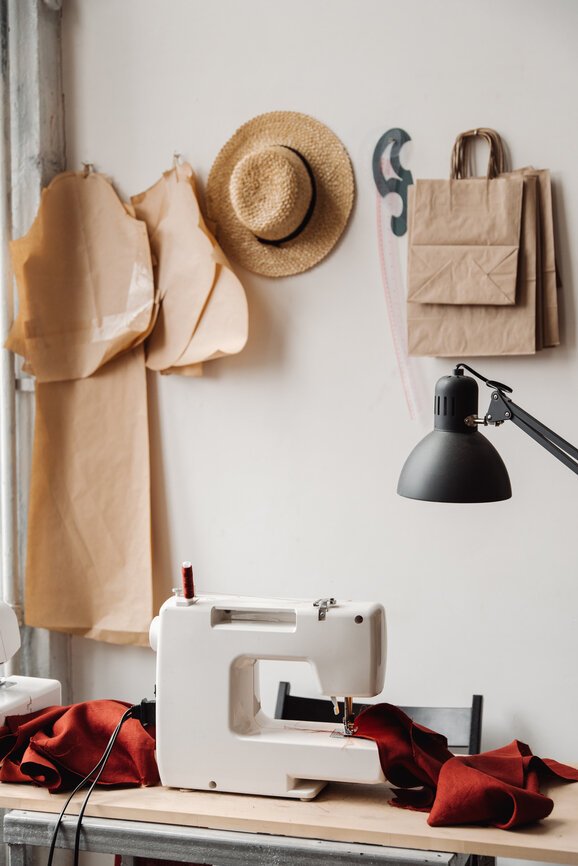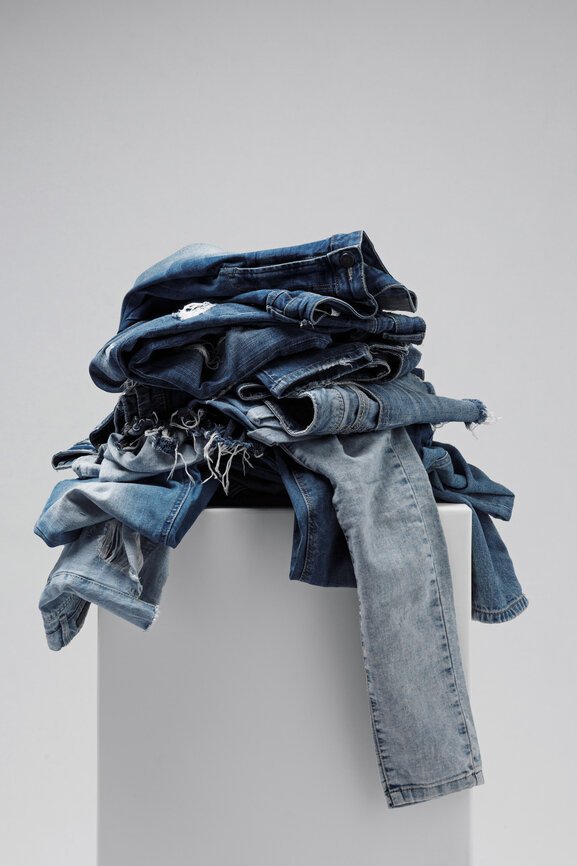
What Happens To Workers When We Boycott Fast Fashion?
Is It Possible to Change The Industry?
There’s a common debate in the sustainable fashion community as people wonder whether boycotting fast fashion brands benefits garment workers or whether these well-intentioned actions are counter-productive. Last year, Ayesha Barenblat, founder and CEO of the nonprofit Remake wrote, “At nearly every talk I give about our sustainable fashion movement, an audience member asks—‘Won’t boycotting fast fashion and buying less cause the women who make our clothes to lose their jobs? Aren’t sweatshop jobs better than no jobs at all?’”
Those who have experience working with garment workers at factories around the world know that these jobs are unsustainable to begin with. In a phone interview, Nazma Akter, the Executive Director of Awaj Foundation in Bangladesh, explains that malnutrition, poor sanitation, and long working hours are just some of the dangerous circumstances garment workers face. And in 2020, many factories in places like Bangladesh have ignored COVID-19 safety protocols and continued to operate at full capacity.
“Malnutrition, poor sanitation, and long working hours are just some of the dangerous circumstances garment workers face.”
Speaking from her apartment in Manila, TELAstory Collective founder Hannah Neumann says that “boycotting is very important and that boycotting should be done, but not necessarily because it’s going to shut down a company…a billionaire-owned corporation is not going to shut down overnight.”
Yes, a job is better than no job at all, but perhaps we should be asking ourselves: Is that the kind of standard we want to rally behind?
Changing Systems & Mindsets
Garment workers may not be crushed by boycotts, but only because the system is already crushing them. To create a truly equitable future for all within the fashion industry, we need to change it completely. Boycotts might not be the golden ticket, yet neither is complacency.
“I think that it’s such a trap to fall into being a sympathetic beneficiary of a colonialist system,” explains Neumann. “If things were going to just naturally progress and change to the point where everyone was equal, wouldn’t we be a bit further along in that by now? And wouldn’t we have seen a shift in the system?”
As a human rights activist and founder of a worker-centered cooperative, Neumann has intimate knowledge of how the supply chain works, or rather, doesn’t. She explains how we still use the same global trade routes from the 1700s. “Ships were going back and forth to colonized nations and basically [robbing] those countries of their raw goods and labor to make the others wealthy. So when we’re dealing with the fashion industry, we’re dealing with a system that, in some ways, hasn’t changed all that much.”
“There is a false notion that workers in other countries can live with lower wages.”
Even within sustainable fashion, we need to rethink how we value producers. There is a false notion that workers in other countries can live with lower wages. But everyone in the supply chain deserves an income that allows them to live and thrive. There’s a difference between the cost of living and the cost of surviving—and the fashion industry (including brands marketing themselves as sustainable) is barely providing the latter to garment workers.
How To Help Garment Workers
So how do we fight the status quo but also ensure our boycotting isn’t counter-productive for garment workers? We find ways to advocate for change, even if our actions seem small. Each boycott, redirection of wealth, or discovery is a means to a very important end. Here are three steps to help us get started.
1. Make Noise
“A boycott is more active than not shopping.”
“A boycott cannot be silent,” explains Annie Shaw, the Outreach Coordinator for the Garment Worker Center in Downtown Los Angeles. “I think the common mistake that consumers make is [saying] ‘I’m going to boycott a brand, but not tell [anyone].’ A boycott is more active than not shopping.”
Shaw suggests letting garment workers take the lead, as they are the only ones who know the true cost and their needs. A boycott must be about vocalizing opposition to exploitative practices while having an end goal in mind—what are we fighting for?
Akter encourages consumers to hold brands accountable by asking for transparency throughout their supply chain. By supporting campaigns like Remake’s #PayUp or bills similar to the Garment Worker Center’s SB 1339 (which was sadly rejected), we can stand in solidarity with workers near and far.
“Hold brands accountable by asking for transparency throughout their supply chain.”
2. Buy Better
We can also align our spending with our values. Shopping consciously won’t necessarily bring down a large corporation, but it could make all the difference to a small business. We can support small and ethical fashion brands in addition to protesting larger fast fashion labels.
“You have some small responsibility with your own consumer choices, but how can you [support others doing the work as well]? Find something or someone that is doing some good and then get really involved. Be a champion [of other’s work] without asking for anything in return,” Neumann suggests.
“Shopping consciously won’t necessarily bring down a large corporation, but it could make all the difference to a small business.”
How can we use our privilege, resources, or platforms to boost those who are working in the ethical fashion trenches? Through grassroots efforts like subscribing to expert Patreon platforms (start with Aja Barber) or by becoming an investor in a responsible organization like Garment Workers Center, if you have the means. You can also highlight the work of a brand that is doing right by its workers, and support influencers and advocates who are working to change the industry.
3. Stay Humble
“[The treatment of garment workers]…reeks of racism, violence, and colonialism.”
“We’re uncomfortable with discussing [the treatment of garment workers] because it just reeks of racism, violence, and colonialism,” explains Neumann. The only way we’re going to create a strong collective and revolutionize this industry is if we stay humble and open to learning.
Defensiveness keeps us at arm’s length from those we may need to connect with most. We cannot fix a broken system with broken people. But through humility and unwavering commitment to the end goal, perhaps we can change the industry for the better.
How else can we support garment workers and hold brands accountable? Share in the comments below!
Audrey Stanton was born and raised in the Bay Area and is currently based in Los Angeles. She works as a freelance writer and content creator with a focus in sustainable fashion. Audrey is deeply passionate about conscious living and hopes to continue to spread awareness of ethical consumption.




